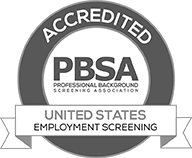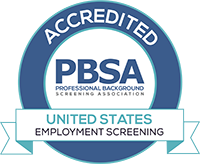BLOG
Wisconsin Legislators Expanded The Definition Of Arrest Records
May 20, 2025
Wisconsin law prohibits discrimination because an employee or job applicant has an arrest record. The state's Supreme Court provided guidance to help employers understand what that means.
The Wisconsin Fair Employment Act
The Wisconsin Fair Employment Act (WFEA), which originally went into effect in 1963, prohibited employers from discriminating against employees and job seekers simply because they had an arrest record. Examples of disallowed actions were:- Refusing to hire or license an individual.
- Using language in job advertisements that says having any type of criminal record will disqualify a person from being hired.
- Firing or otherwise discriminating against an existing employee.
- Are relevant to the position being sought.
- Indicate the person poses an undue risk to the business, other staff or the public.
Wisconsin legislators defined arrest record as anything that suggest a person was “questioned, apprehended, taken into custody or detention, held for investigation, arrested, charged with, indicted or tried for any felony, misdemeanor or other offense pursuant to any law enforcement or military authority.” However, due to a criminal case that occurred in 2024, the state’s Supreme Court was called upon to better define what can and cannot be considered an arrest record.
The Supreme Court’s Decision
Following the 2024 case, the Wisconsin Supreme Court expanded upon the definition of arrest records. They clarified that this can include non-criminal offenses. If a person was questioned, apprehended or charged with any type of offense, then they might be protected by the WFEA.
What Employers Should Know
Employers in Wisconsin should be aware that non-criminal records may now be considered arrest records and therefore be protected by the WFEA. That means organizations are prohibited from discriminating against employees or candidates based on those records.Every employer should be aware that they may not consider various types of records, such as those that are expunged or not otherwise publicly available, when making hiring decisions. A great way to accomplish this is to work with a Consumer Reporting Agency (CRA) that is accredited by the Professional Background Screening Association (PBSA). CRAs must undergo a comprehensive audit and demonstrate that they follow reasonable procedures to only provide current, reportable records before they can become accredited.
Best Practice For Background Screening
Organizations can take steps to avoid claims of discrimination by ensuring that their hiring and screening policies are always up to date and complete. Employers should be aware that they may be subject to various federal, state and local laws depending on where they operate. If possible, we recommend having these policies reviewed by legal counsel. Once approved, they should be shared with everyone who will participate in the hiring process.If your organization is bringing on employees, contractors or volunteers, please contact us. Our highly experienced team can help you customize screening packages that suit your specific needs, comply with relevant laws and meet industry standards. Based in California, we are available to assist you Monday through Friday from 5am to 6pm PT.
# #WisconsinLaw #FairEmploymentAct #ArrestRecords #SecondChanceLaws #BackgroundChecks







